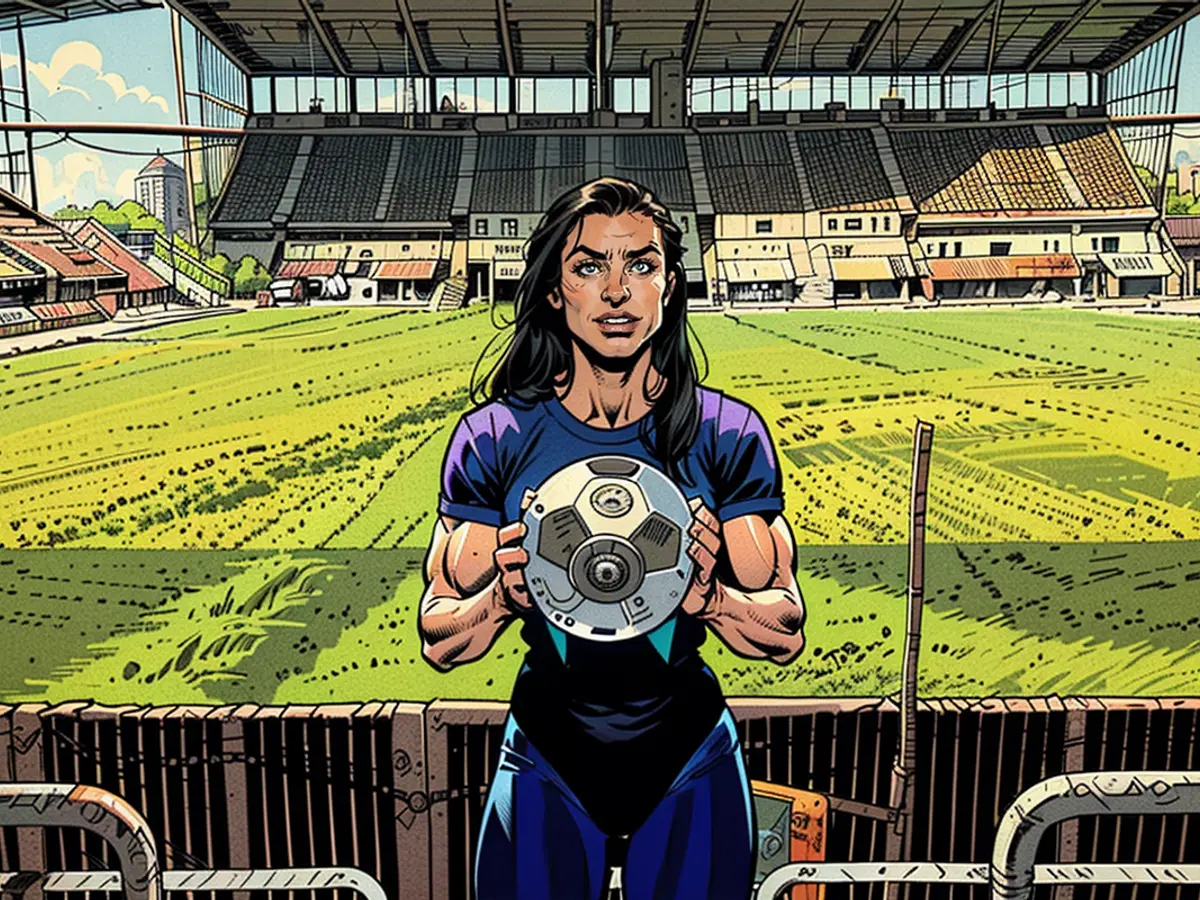Appeal for elections - The European elections are crucial, particularly for women.
Sara Nuru, a model and entrepreneur, stresses the importance of striving for gender equality not just within the EU, but around the world. She believes that collaborating with women from different countries and cultures can lead to new insights and opportunities.
The issue of healthcare is a significant concern, as access to fair healthcare is essential not only in Europe but also globally. However, women themselves need to take action to create better conditions for themselves. Solutions can range from initiating projects and supporting one another to pursuing careers in MINT fields and running for leadership positions.
Midwife Kerstin Lüking emphasizes the importance of addressing the needs of mothers, especially in the postnatal period. Despite their many responsibilities, women are still subjected to burnout and mental health issues due to societal expectations.

Europe still has miles to go in terms of achieving equality across various areas, such as political, economic, social, legal, and cultural aspects. This involves promoting equal pay, female representation in politics and leadership roles, and ensuring bodily integrity and protection from violence.
Inonge Kalousan, a National player, takes a global view of the EU election and acknowledges the critical role the European Union plays in reinforcing women's rights internationally. While voting is crucial, active engagement in advocating for women's rights extends beyond the polling station.

Katie Gallus, a journalist, highlights the need for women to have a say in decision-making processes, rather than just participating. Limited decision-making power can result in material gains instead of significant progress. It is also essential to support each other beyond one's immediate circle.
Healthcare inequity is a universal challenge, as women in Germany and other countries still experience similar issues. Lüking calls for action towards better postnatal care and improved awareness about its importance. She urges women to come together, ask for help, and genuinely fight for each other. [

Inonge Kalousan takes a global perspective on the EU election and underscores the value of the European Union in advancing women's rights on the international stage. "I'm immensely proud to see women from all over the world engaging in politics and being part of such pivotal conversations," Kalousan shares in an interview with stern. But true advocacy for women's rights doesn't end at the polls.
Kalousan highlights the power of engaging in uncomfortable dialogues as a means of sparking much-needed discussions. She notices that many are resonating with these conversations and that they're exploring methods to begin them. "What we can each do is chip in to boost other women in our everyday lives," says the footballer.

Journalist Katie Gallus underscores the necessity of women participating in decision-making processes, not just participating for the sake of accordance. "Having a voice at the table but no control over the choices doesn't amount to much more than a shiny LinkedIn profile picture that reads, "Women were here," she notes. Building solidarity remains key, and reaching beyond one's immediate social sphere is necessary to encourage honest exchange.
Gallus critiques the limited commitment to women's issues in politics, as budget cuts often result in a significant divide between men and women in the health sector. She draws attention to the issue of female genital mutilation, which still occurs in Germany, albeit clandestinely. With this reality in Europe and beyond, the appeal stands to network, inquire for assistance, and unite in a united front for the well-being of women.
Read also:
- The European elections have significant implications for women's rights, serving as an opportunity for Sara Nuru and other advocates to emphasize their election programs in fostering gender equality, not just within the EU but globally, including countries like Ethiopia.
- In the Philippines, one can notice a growing focus on women in politics and leadership roles, with future elections potentially showcasing a more diverse ballot paper representing various cultures and perspectives.
- Sara Nuru's association in Ethiopia has emphasized the importance of empowering women, pushing for self-determination and equal opportunities, hoping for a future where women can take a more active role in society.
- The European Union's involvement in promoting womens' rights extends beyond the European elections, as shown by Goodwill Ambassador Inonge Kalousan's work in advocating for women's rights internationally.
- European elections are an opportunity for the EU to strengthen its commitment to gender equality, focusing on promoting equal pay, female representation in politics and leadership roles, and ensuring bodily integrity and protection from violence in countries like Peru.
- Journalist Katie Gallus highlights the need for sustained engagement in women's rights advocacy, extending beyond the ballot paper and into everyday interactions, emphasizing that women must ensure their voices are heard in decision-making processes to bring about meaningful change.







